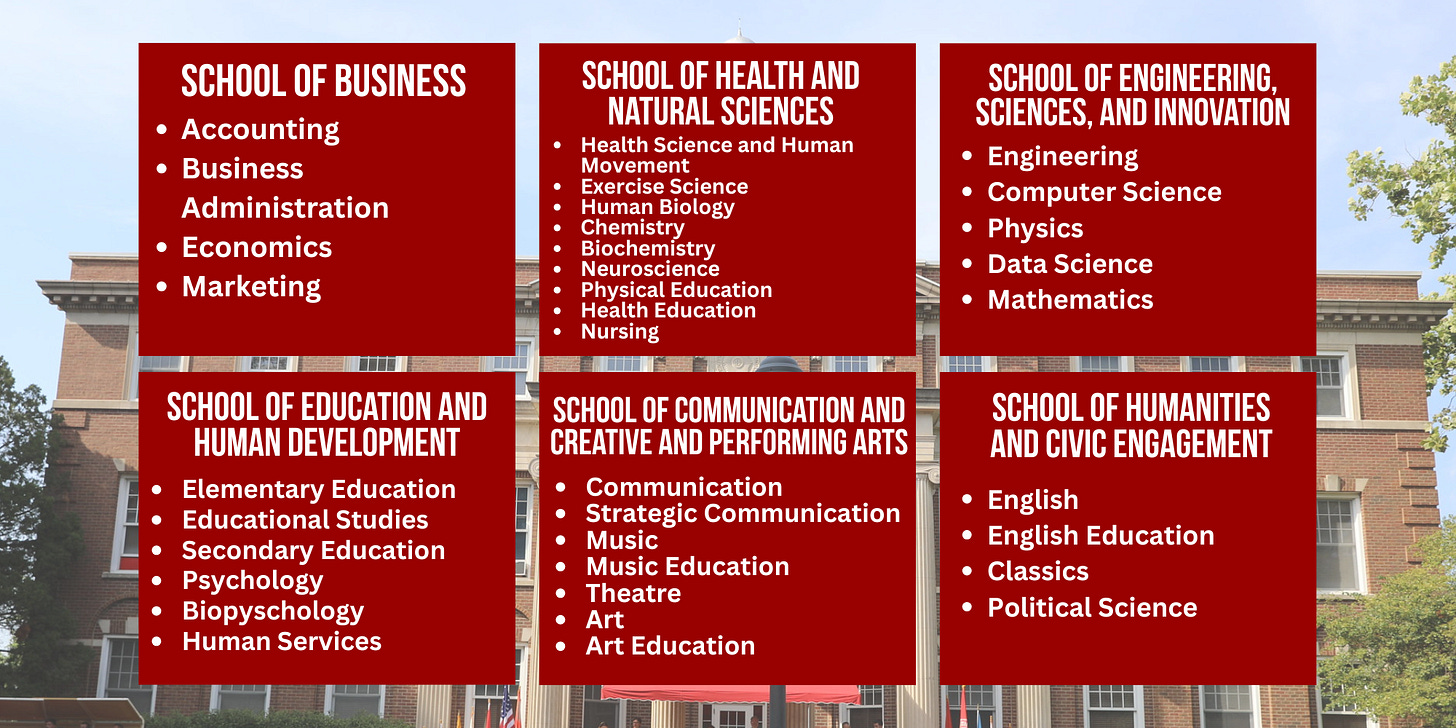On July 1, all Monmouth College students received an email from President Draves titled “Investing in Your Success | Exciting Academic Updates.” In this email, students learned that Monmouth College would be installing academic schools. These schools are the School of Business, School of Health and Natural Sciences, School of Engineering, Sciences, and Innovation, School of Education and Human Development, School of Communication and Creative and Performing Arts, and School of Humanities and Civic Engagement. Each academic school will be led by a chair who will be announced later this semester.
Draves, who has served as the college’s president for just over a year, has many goals for the college, “We have five focused areas for the campus,” said Draves.
Those five goal areas are divided into the following categories: Personalized Scots Education, Enrollment and Financial Growth, Culture of Connection, Our People (Students, Faculty, and Staff), and Systems of Success. According to Draves, the academic schools will provide forward progress on some of these goals.
“We had 26 academic departments, but we only have 750 students,” said Draves. “The incentive behind this was fewer units overall, so faculty would work together on more interdisciplinary work that liberal arts institutions are known for.”
“It should provide more opportunities for students outside the classroom,” said Draves. “Your faculty will spend less time doing administrative stuff and have more time for you. It probably changes the life of faculty much more than the life of a student.”
The addition of the academic schools came with students learning that some current Monmouth College majors would be phased out and eventually no longer offered.
“Last December, a task force was given a charge by our Board of Trustees,” said Draves. “This charge was to look at our academic portfolio as a whole. They made a series of recommendations to try to balance the quality of academic areas. They made a recommendation to the Board, who then made the decision.”
The majors that will be phased out have few students studying the fields. “It was obviously controversial and hard,” said Draves. “They studied the market of what students are interested in studying, what the demand is for those, what is financially possible, and then the overall quality of the educational experience.”
There has been backlash, according to Draves, and dismay to the phasing out of majors. Many current and past students have expressed their disappointment in this decision.
Some faculty and staff were let go during this process, and as a result, several classes were cancelled or moved around over the summer. Students are struggling with these ongoing staff changes that affect their schedules.
To help address this issue, Dean Mark Willhardt, the Vice President of Academic Affairs, is holding open office hours with students affected by these changes. These students will also meet with the registrar to map out their future courses.
“There was absolutely an impact this semester for some of those students. I understand that, and I apologize for that,” said Draves.
She encourages students to voice their concerns or opinions to her.
“We want to make sure that everybody feels good about their education here and has a good network,” said Draves. “I hope students always feel that they can come to me with anything. Stop me on the sidewalk. I go to the dining hall a lot. Stop me in the dining hall. I want to hear about your Monmouth experience.”


